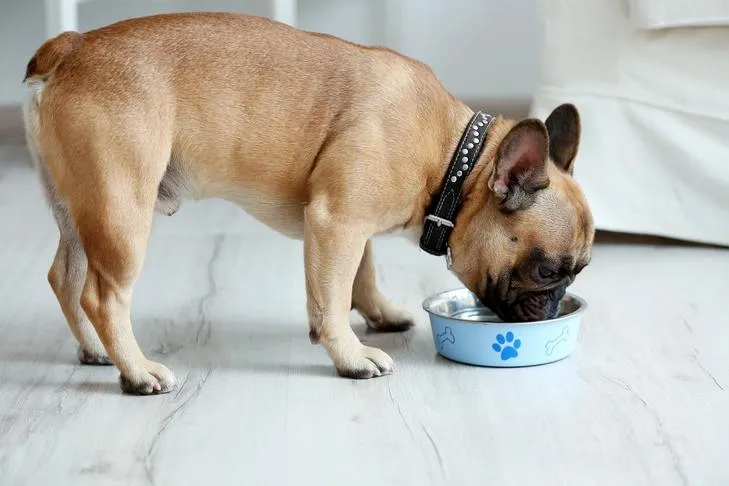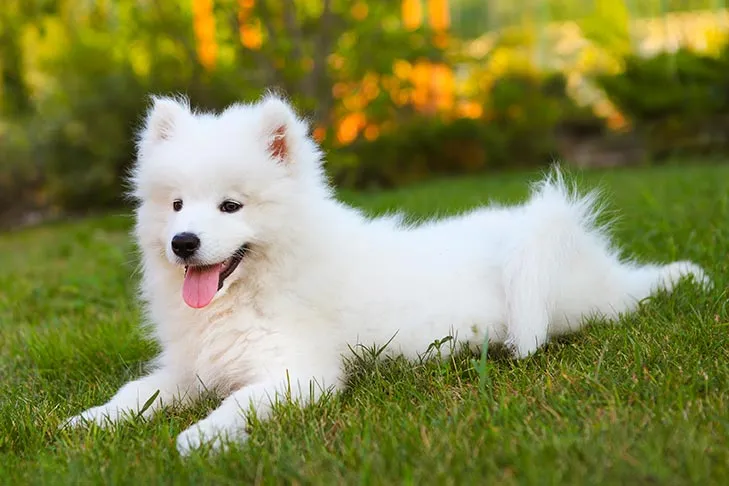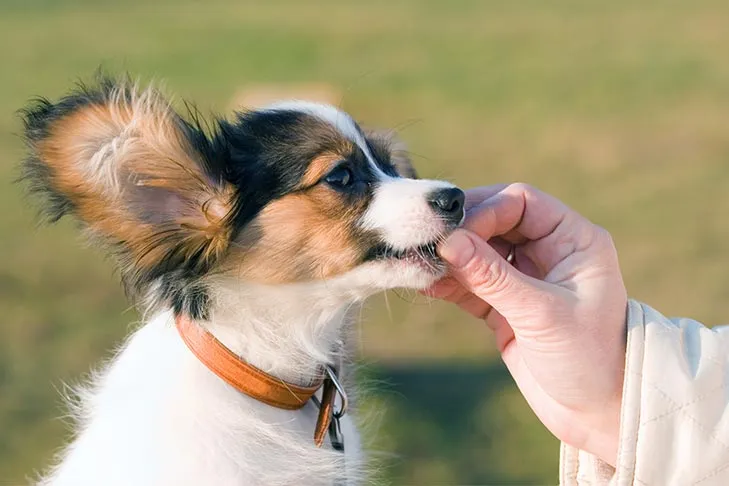As loving pet parents, it’s natural to want to share everything with our furry companions, including our meals. While your dog might give you those irresistible puppy-dog eyes when you’re enjoying a snack, it’s crucial to know that not all human foods are safe for them. In fact, many common ingredients in our kitchens can be harmful or even toxic to dogs. However, there’s good news! A variety of nutritious and delicious human foods can be safely incorporated into your dog’s diet as healthy treats or supplements, provided they are prepared correctly and offered in moderation.
Understanding What Human Foods Are Best For Dogs involves knowing the benefits, potential risks, and proper preparation for each item. This guide from Dog Care Story will walk you through a list of generally safe human foods that can offer health benefits to your canine friend, helping you make informed decisions about sharing your pantry with your pup. Always remember that these are supplementary treats, and your dog’s primary diet should consist of a high-quality, balanced dog food. When in doubt, it’s always best to consult your veterinarian before introducing any new food to your dog’s menu, especially if they have existing health conditions or dietary sensitivities. To learn more about common dog-friendly options, explore our detailed guide on what human food is ok for dogs.
Safe and Beneficial Human Foods for Your Dog
Many everyday kitchen staples can provide valuable nutrients for your dog, from essential proteins and healthy fats to vital vitamins and minerals. Here’s a closer look at some of the best human food choices for your canine companion:
Bread
Small quantities of plain bread are generally harmless for dogs, provided it’s free from spices, nuts, and especially raisins, which are highly toxic. While bread offers no significant nutritional benefits for dogs, it can be a benign treat. It’s high in carbohydrates and calories, similar to humans, so moderation is key to prevent unnecessary weight gain. Homemade breads without preservatives are preferable to store-bought varieties, but it’s often best to limit bread entirely or offer it very sparingly.
Cashews
Cashews can be a safe treat for dogs, but only a few at a time. They contain beneficial nutrients such as calcium, magnesium, antioxidants, and protein. However, despite having less fat than some other nuts, overfeeding cashews can contribute to weight gain. Always offer unsalted cashews as excessive sodium is detrimental to canine health. They make a nice, occasional indulgence.
Cheese
In small to moderate portions, most dogs can safely enjoy cheese. For dogs without lactose intolerance—a rare but possible condition—cheese can serve as an excellent high-value treat. Due to its often high-fat content, opting for lower-fat varieties like cottage cheese or mozzarella is advisable. Many dogs also enjoy specialized, long-lasting chews made from dried cheese, such as Himalayan dog chews, designed specifically for them.
 A golden dog with a contented expression rests its head on a kitchen counter, looking at a block of cheese.
A golden dog with a contented expression rests its head on a kitchen counter, looking at a block of cheese.
Coconut
This unique fruit offers several advantages for dogs. It contains lauric acid, known for its antiviral and antibacterial properties. Coconut can also help improve bad breath and alleviate certain skin conditions like hot spots, flea allergies, and general itchy skin. Both coconut milk and coconut oil are safe for canine consumption. When offering fresh coconut, ensure the hard, fibrous outer shell is removed to prevent choking hazards or intestinal obstruction.
Corn
Corn is a surprisingly common ingredient in many commercial dog foods, valued for its nutritional content. If you’re sharing corn, always ensure it’s removed from the cob. The cob is very difficult for dogs to digest and can easily cause a dangerous intestinal blockage. Air-popped corn kernels (unsalted, unbuttered) can be a safe, occasional treat. For playful pups, a squeaky corn toy might be a safer and equally enjoyable alternative!
Eggs
Fully cooked eggs are an excellent source of protein and can be a comforting food for dogs with an upset stomach. It’s crucial that eggs are cooked completely, as raw egg whites contain avidin, which can interfere with biotin absorption and potentially lead to a biotin deficiency over time. Scrambled, boiled, or poached eggs make a fantastic, healthy addition to your dog’s diet.
Fish
Fish is packed with beneficial fats (like Omega-3 fatty acids) and amino acids, providing a significant health boost for your dog. Salmon and sardines are particularly advantageous. Salmon is rich in vitamins and protein, supporting joint and brain health, while sardines offer soft, digestible bones for extra calcium. For all fish except sardines, meticulous removal of all tiny bones is absolutely essential to prevent choking or internal injury. Never feed your dog uncooked or undercooked fish; it must be fully cooked and cooled. Limit fish intake to a maximum of twice a week.
Ham
While ham is generally safe for dogs, it’s not the healthiest choice. Its high sodium and fat content mean it should only be offered in very small, infrequent amounts as a rare treat. It should never be a regular part of your dog’s diet. If you choose to share a tiny piece, ensure it’s plain and trimmed of excess fat.
 A French Bulldog intently eating from a grey bowl placed on the floor in a home setting.
A French Bulldog intently eating from a grey bowl placed on the floor in a home setting.
Honey
Honey is a natural powerhouse of nutrients, including vitamin A, potassium, calcium, magnesium, copper, and a wealth of antioxidants. Giving dogs small amounts of local honey can potentially help with seasonal allergies by gradually exposing their systems to local pollens, thereby building immunity. Beyond consumption, the sticky consistency of honey can also be used topically as a natural remedy for minor burns and superficial cuts due to its antibacterial properties.
Milk
Dogs can have milk, but caution is advised. Many dogs can be lactose-intolerant, meaning they lack the enzyme to properly digest lactose, leading to gastrointestinal upset. While a small amount of milk might be fine for some, owners should be vigilant for signs of intolerance such as diarrhea or vomiting. For most dogs, water remains the best and safest hydrating option.
Peanut Butter
Peanut butter is an excellent source of protein for dogs, rich in heart-healthy fats, B and E vitamins, and niacin. The healthiest option is raw, unsalted peanut butter. Always meticulously check the label to ensure it does not contain xylitol, an artificial sweetener that is highly toxic and potentially fatal to dogs, even in small amounts. Plain, natural peanut butter can be a great training treat or a way to disguise medication.
Peanuts
Unlike almonds, peanuts are safe for dogs to consume. They are packed with beneficial fats and proteins. However, due to their high-fat content, peanuts should be given in moderation to avoid excessive fat intake, which can lead to pancreatitis. Always offer unsalted peanuts, as high sodium levels are difficult for a dog’s kidneys to process.
Popcorn
Unsalted, unbuttered, air-popped popcorn can be an acceptable treat for your dog in moderation. It contains riboflavin and thiamine, which are beneficial for eye health and digestion, along with small amounts of iron and protein. Ensure all kernels are fully popped, as unpopped kernels can pose a choking hazard or become lodged in teeth.
Pork
Pork is a highly digestible protein source, rich in amino acids, although it generally contains more calories per pound compared to other meats. It may also be less likely to trigger allergic reactions in some sensitive pets than other proteins. Ensure it’s cooked thoroughly and plain, without any added seasonings, onions, or garlic, which can be harmful.
Quinoa
Quinoa, a complete protein, has gained popularity as an ingredient in many high-quality dry dog foods. Its robust nutritional profile makes it a healthy and digestible alternative to common starches like corn, wheat, and soy, which are often used in kibble formulations. It can be served cooked and plain.
 A fluffy Samoyed puppy lays on green grass in a relaxed pose, looking towards the camera.
A fluffy Samoyed puppy lays on green grass in a relaxed pose, looking towards the camera.
Salmon
As mentioned earlier, fully cooked salmon is an outstanding source of protein, healthy fats (especially Omega-3 fatty acids), and amino acids. It actively supports joint health, promotes brain function, and significantly boosts a dog’s immune system. Conversely, raw or undercooked salmon can harbor parasites that cause “salmon poisoning disease,” leading to severe symptoms like vomiting, diarrhea, dehydration, and in extreme cases, even death. Always ensure salmon is cooked all the way through, as proper cooking eliminates these dangerous parasites. If you’re curious about other proteins, you can find a comprehensive guide on what are food dogs can eat.
Shrimp
A small portion of shrimp offered occasionally is generally fine for your dog. It’s imperative that shrimp are fully cooked and completely shelled, with the tail, head, and legs removed. Shrimp are low in fat, calories, and carbohydrates, while being rich in antioxidants, vitamin B-12, and phosphorus. They make a lean, protein-packed treat.
Tuna
Dogs can consume tuna, but only in very small, infrequent quantities. In moderation, cooked, fresh tuna is an excellent source of omega-3 fatty acids, which are beneficial for heart and eye health. Canned tuna, however, often contains higher levels of mercury and sodium, both of which should be strictly limited. If you offer canned tuna, choose varieties packed in water (not oil) and ensure it contains no added spices or seasonings.
Turkey
Turkey is a safe and lean protein source for dogs, provided it’s prepared correctly. Always remove any excess fat and skin, as these can be difficult to digest and contribute to pancreatitis. It’s also crucial to meticulously check for bones; poultry bones can splinter during digestion, leading to dangerous blockages or even internal tears. Ensure the meat is plain, without any salt, seasonings, onions, or garlic, all of which are harmful to dogs. For a broader perspective on safe and unsafe options, consider reading what can dogs have and not have.
Wheat or Grains
Contrary to popular belief, grains are not inherently bad for dogs, and most do not need a grain-free diet. In fact, grains like wheat and corn are excellent sources of protein, essential fatty acids, and fiber, contributing to a healthy digestive system and overall vitality. If your dog has a confirmed grain allergy, then avoiding grains is necessary. Otherwise, grains can be a beneficial part of their diet. Always consult your veterinarian for personalized dietary recommendations, especially if you suspect allergies.
Yogurt
Plain, unsweetened yogurt can be a perfectly acceptable and healthy snack for dogs. The active bacteria (probiotics) found in yogurt can help strengthen their digestive system. However, as with milk, some dogs may have difficulty digesting dairy products. If your dog tolerates it well, plain yogurt is the best choice. Avoid any yogurts with added sugars, artificial sweeteners (especially xylitol), or fruit flavorings, as these can be detrimental to your dog’s health.
 A small Papillon puppy with long fur and perked ears gently takes a treat from a human hand, demonstrating delicate manners.
A small Papillon puppy with long fur and perked ears gently takes a treat from a human hand, demonstrating delicate manners.
General Tips for Feeding Human Foods to Your Dog
When deciding to share your food with your canine companion, remember these important guidelines to ensure their safety and well-being:
- Moderation is Key: Human foods should always be treated as occasional treats and make up no more than 10% of your dog’s total daily caloric intake. The bulk of their diet should come from a high-quality commercial dog food.
- Plain and Unseasoned: Always offer foods that are plain, cooked, and unseasoned. Avoid salt, pepper, spices, garlic, onions, chives, and artificial sweeteners.
- Proper Preparation: Remove all bones, seeds, pits, and tough skins from fruits and vegetables. These can be choking hazards or contain toxic compounds.
- Introduce Slowly: When introducing a new human food, start with a very small amount and monitor your dog for any signs of digestive upset, such as vomiting or diarrhea.
- Consult Your Vet: Always discuss new additions to your dog’s diet with your veterinarian, especially if your dog has any underlying health conditions or specific dietary needs.
Human Foods Dogs Can’t Eat
It is equally, if not more, important to be aware of the common human foods that are dangerous and toxic for dogs. These include chocolate, grapes and raisins, onions, garlic, xylitol (artificial sweetener), avocado (especially the pit and skin), macadamia nuts, alcohol, and caffeine. Always keep these items securely out of your dog’s reach. If you suspect your dog has ingested something toxic, contact your veterinarian or a pet poison helpline immediately. For a comprehensive list of items to avoid, refer to our detailed article on what food dogs can t have.
Conclusion
Enriching your dog’s diet with certain human foods can be a wonderful way to provide variety and deliver additional nutrients, strengthening your bond in the process. From protein-rich eggs and fish to antioxidant-packed honey and wholesome quinoa, the options for healthy, dog-friendly human snacks are plentiful. However, knowledge and caution are paramount. Always ensure foods are prepared safely, offered in moderation, and are free from harmful ingredients. Prioritizing your dog’s health means always checking with your veterinarian before introducing new items and being vigilant about foods to avoid. By following these guidelines, you can confidently share safe and beneficial human foods with your beloved canine, contributing to their overall health and happiness. Continue exploring Dog Care Story for more expert advice on canine nutrition and well-being!
